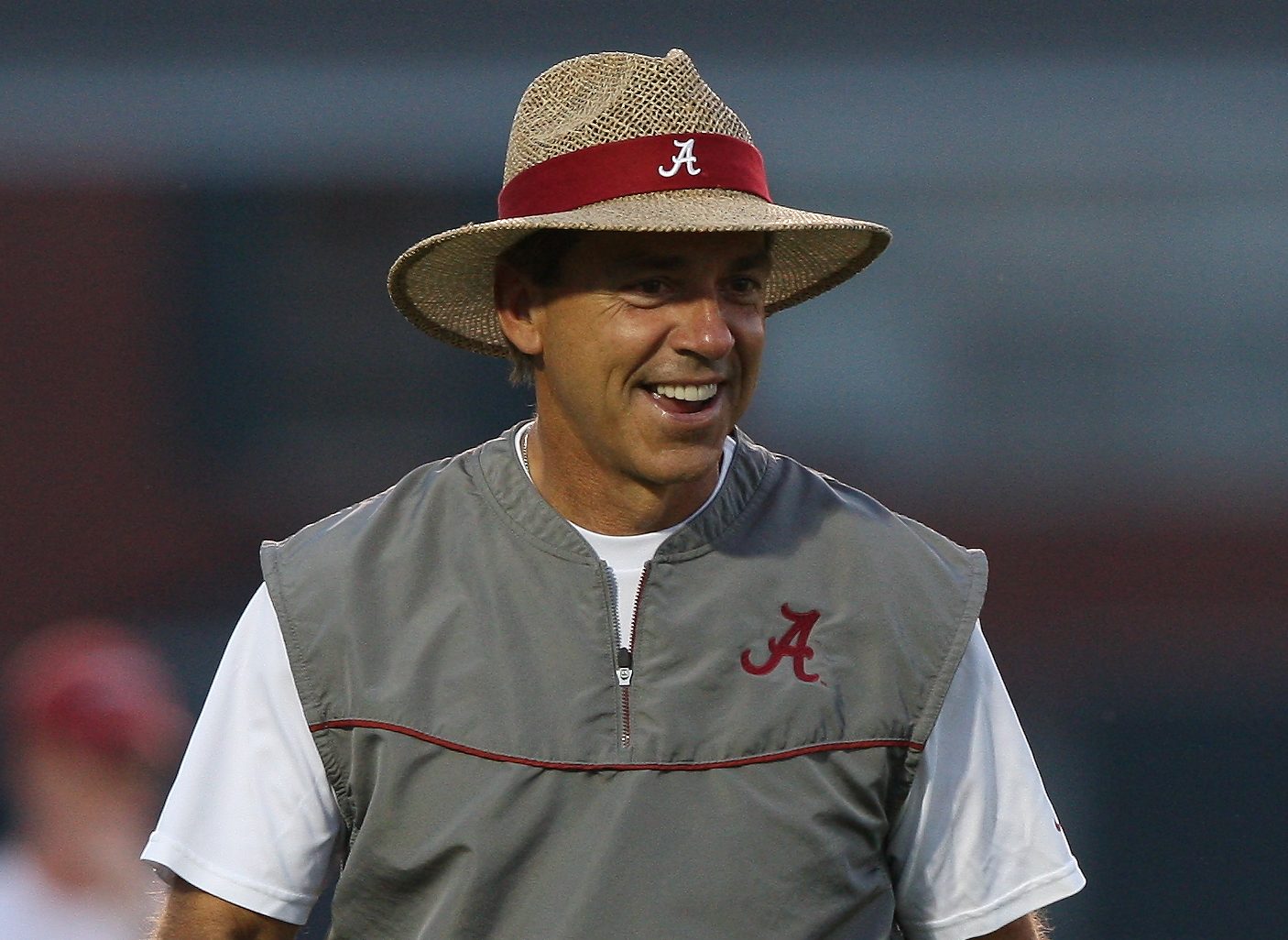The sun rose in the East this morning. The sky is blue. The NCAA screws over its student athletes. At any given moment, you can be sure that any of those statements is true, with a new story popping up almost weekly to confirm the third.
This time around, that confirmation comes in the form of Maurice Smith, a defensive back who has played the last three years at the University of Alabama. Smith, who recorded 15 tackles last season, is set to graduate this weekend. Smith seeks to use his graduation to transfer to the University of Georgia, where he plans to enroll as a graduate student and continue his football career.
Graduating from college is a good thing. Continuing one’s education is a good thing. Smith’s plans should be seen as an NCAA success story, universally accepted as positive. But, like with all good things in this world, Nick Saban stands in the way.
Under NCAA rules, if a student athlete graduates with remaining eligibility they may immediately transfer schools and play out the rest of their time. There is however, an SEC provision that requires a waiver from the original team if an athlete wishes to transfer within the conference. Without such permission, the athlete would have to sit out a season. The University of Alabama is denying Maurice Smith this waiver. Smith reportedly held a meeting with Alabama head coach Nick Saban, who told the defensive back that he would not allow the young player to transfer to Georgia. With the Bulldogs starting camp on Tuesday, it seems as if Smith’s prospects with the new team are virtually nonexistent.
The idea that Maurice Smith should have to answer to anyone other than himself about his post- grad plans seems absolutely ludicrous. That is, if you forget the pettiness of Nick Saban or just how little control NCAA players have over their lives.
That Georgia is Smith’s destination is telling of Saban’s motives. The Bulldogs are coached by Kirby Smart, a former minion of Saban, who served as defensive coordinator for the Tide from the 2008- 2015 seasons. Since the beginning, Saban hasn’t been too happy with Smart’s departure, and it seems as if the decision to block Maurice Smith’s transfer is born out of this anger. After all, Smith barely played in his first two seasons at Alabama, and he was by no means a key player in their 2015-16 championship run. This isn’t to diminish Smith as a player, but it is hard to imagine that Smith’s absence will have too strong of an effect on a defense that has been top notch for the last decade or so. They’ll be just fine.
What’s more, Saban has already allowed the transfer of one of his graduate players to another SEC school. Chris Black, who was a wide receiver for the Tide, will be playing for Mizzou next year.
Perhaps worst of all, Alabama and Georgia will not even play against each other in next year’s regular season. That’s right. Maurice Smith could give all the inside information in the world to his new team, and it wouldn’t mean a thing. Unless the two teams meet in a bowl game, which is highly unlikely, Smith and Saban should never have to cross paths on a football field again.
Saban has no real reason to do this. The fate of the University of Alabama’s football team does not depend on Maurice Smith. If it weren’t for the current debacle, no one aside from SEC diehards would even know his name. If the young man wishes to switch teams, he should be allowed to. Maurice Smith did everything right, and still Alabama is keeping him from his goals simply because they’re upset he wanted to leave. After being a part of an effort that won the school a National Championship, Smith decided he wanted to play at somewhere other than Alabama, so they threw all of his belongings in the trash. Shame on you, Nick Saban.
But there’s something more here. Saban should certainly allow Smith to transfer, but he never should have had any say in the matter in the first place. The current SEC rules create a system where the fate of a young college graduate has come down to a pissing match between ex- colleagues – turned – rivals, and that is completely cruel.
There are very reasonable arguments to be made behind restricting the ability of student athletes to transfer while they are still undergraduates. After all, the league claims to be one that demands academic focus of its participants, and such focus would be hard to achieve if players are being sorted between the numerous high- caliber teams that exist in the conference. However, once a player graduates, there should be no restrictions on where they can play in the next season. Perhaps they are interested in the graduate program offered by a different school. Perhaps they have been offered a larger role with a new team. It doesn’t matter why someone would want to switch, the idea that a player who has graduated from a university is at the mercy of his former school makes absolutely no sense.
But, as we know, it isn’t about the players. The NCAA, especially the big- name programs found in the SEC, makes exorbitant amounts of money off of these young men every year, with total disregard for their wants, needs, and bodies. Until the SEC does away with its graduate transfer rule, Maurice Smith and players like him will be just another example of this.






